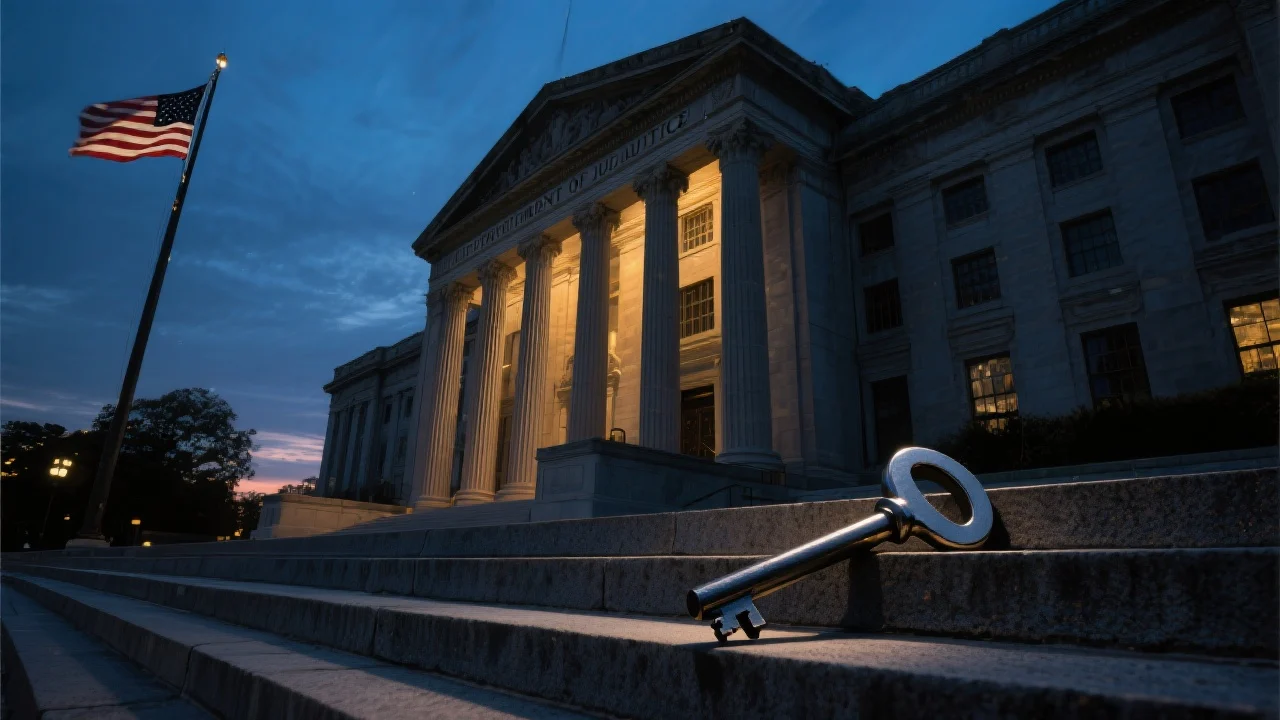A Meeting That Was Never Supposed to Happen

In a move that has left both legal experts and the public blinking in disbelief, the Department of Justice granted Ghislaine Maxwell a rare, tightly circumscribed immunity deal for two days of questioning about the Jeffrey Epstein case.
The Anatomy of a Deal: Inside Ghislaine Maxwell’s Unprecedented DOJ Immunity Agreement
The meetings, which stretched over nine hours across two days, were not the product of a grand bargain or a backroom negotiation. Instead, they were initiated by Maxwell herself, who is currently serving a 20-year sentence for her role in Epstein’s sprawling web of sexual abuse. The DOJ’s Deputy Attorney General Todd Blanche, a figure with his own complicated ties to President Trump, sat across from Maxwell in a Tallahassee federal courthouse, asking questions that reportedly touched on “about 100 different people” connected to Epstein’s world as per Newsweek.
The Fine Print of Immunity
This wasn’t blanket immunity. The DOJ offered what’s known as “proffer immunity,” a legal tool that allows a witness to speak freely without fear that their words will be used against them—so long as they tell the truth. If Maxwell lied, the deal would evaporate. Her attorney, David Markus, was quick to clarify that there were “no asks and no promises.” No deals for a lighter sentence, no secret handshake for a presidential pardon. “We haven’t asked for anything. This is not a situation where we are asking for anything in return for testimony or anything like that,” Markus told reporters, though he did not hide that “everybody knows Ms. Maxwell would welcome any relief”.
The Political Theater and Its Critics
The optics of the meeting are impossible to ignore. Blanche, once Trump’s personal defense lawyer, now sits at the heart of a case that has haunted the Trump administration. The president himself, when pressed about the possibility of a pardon for Maxwell, offered a characteristically ambiguous response: “I can’t talk about that now because, you know, it’s a very sensitive interview going on.” The mere suggestion of clemency has already set off alarms among critics, with Senate Minority Leader Chuck Schumer calling the arrangement “high corruption and conflict of interest”.
What Did Maxwell Say?
The substance of Maxwell’s answers remains sealed, but her lawyer insists she “didn’t hold anything back.” The DOJ reportedly asked about a dizzying array of names—“maybe 100 different people”—and Maxwell, for once, did not plead the Fifth. The list of those discussed is a closely guarded secret, but the context is clear: the DOJ is under bipartisan pressure to release the so-called “Epstein files,” a trove of documents that many believe could expose a generation of powerful men to public scrutiny.
The Victims’ Perspective
For survivors of Epstein’s abuse, the news of Maxwell’s immunity deal is a bitter pill. Annie Farmer, who testified against Maxwell, voiced her frustration: “It’s very disappointing that these things are happening behind closed doors without any input from the people that the government asked to come forward and speak against her in order to put her away.” The sense of being sidelined in favor of political expediency is palpable as per ABC News.
The Road Ahead
Blanche has promised to share what he learned “at the appropriate time,” but the timing and content of any revelations remain uncertain. Meanwhile, Congress has subpoenaed Maxwell to testify, and the DOJ faces mounting calls for transparency. Maxwell herself continues to appeal her conviction, her legal team eyeing any possible opening for relief.
A Moment That Defies Precedent
It’s not just the facts of the case that are extraordinary—it’s the atmosphere. The Epstein saga has always been a hall of mirrors, but this latest chapter feels like a fever dream: a convicted sex trafficker, a former president’s lawyer, and a Justice Department under siege, all converging in a windowless room to talk about secrets that have shaped the last two decades of American power. The question now is whether the truth will finally see daylight, or whether this, too, will be another footnote in a story that refuses to end.
